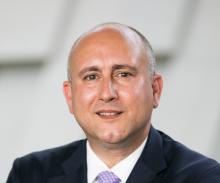Saudi Arabian stocks have dropped 25 percent since the market opened to foreign investment, but it’s still early days
Saudi Arabia’s export revenues have slumped by half, the stock market is in sharp decline, and the government has liquidated billions of dollars in foreign assets and issued sovereign bonds for the first time since 2007.
Coming in the wake of the recent succession of King Salman and the declaration of war in Yemen, these financial setbacks have triggered a wave of speculation about the integrity of the Saudi economy and indeed, the entire political and economic system in the kingdom. ‘Is the House of Saud teetering on the edge of collapse?’ asked the Washington Post back in April – even before the market was opened to foreign investors.
The IMF has downgraded growth prospects for this year to 2.8 percent, from 3.5 percent in 2014. Analysts point to structural weaknesses in the economy, such as the costly and politically sensitive energy subsidies, public sector wage inflation and poor efficiency in the government sector ‒ hardly a rosy picture for investing in the Arabian Gulf’s largest economy as its stock market opens to direct foreign investment for the first time, it would seem. But there are several good reasons for optimism from a foreign investor’s perspective, with far-reaching implications for Saudi corporates and their regional peers.
‒ First, Saudi Arabia has the lowest debt-to-GDP ratio in the world at less than 2 percent, having spent the last eight years paying down its foreign loans. With an economy highly dependent on the cycles of the oil market, the government has learned to pay down debt when oil prices are high, and borrow when prices fall.
‒ Second, Saudi Arabia has one of the world’s largest reserves of hard currency at $650 bn, even though this figure is falling as the government seeks to fill the deficit. Some economists estimate that the kingdom could ride out an oil market slump for eight years, by spending reserves and borrowing, without making major cuts to public sector spending.
‒ Third, King Salman is committed to economic reform. Emphasizing the importance of the private sector in a speech to the US-Saudi Business Council last month, he said: ‘We reaffirm our commitment to improve the investment environment in the kingdom.’ The government is not just opening up the stock market, but also easing restrictions on foreign ownership and visa regulations and actively looking at further liberalization measures.
‒ Fourth, the government’s response to the oil market glut has been positive. Unlike in the 1980s, when it cut output to prop up prices, the government has kept oil production at record levels and continues to invest in major long-term capital projects. As the lowest-cost producer in the world, this makes perfect sense, and will ensure the downturn is as short-lived as possible. When prices return to equilibrium, the kingdom will be well positioned to reap the rewards.
‒ Lastly, Saudi Arabia is arguably the best-managed market in the region. The Capital Markets Authority has called in the public prosecutor to investigate suspected fraud in the stock market and routinely doles out stiff penalties for breaches that would be overlooked in many other markets.
A recent survey of institutional investors by Invesco shows the direction of capital flow is expected to move dramatically in Saudi Arabia’s favor this year, from -17 percent in 2014 to +61 percent this year.
The 25 percent decline in stock prices since the market opened to foreign investment in June tells us that local traders took the opportunity to sell. But foreign investors are actively monitoring Saudi companies, seeking an entry point. HSBC has already begun to trade Saudi stocks directly, and Citi received its approval in October. Over time, the Tadawul as a whole will benefit from increased liquidity, particularly as it moves toward inclusion in MSCI’s Emerging Markets Index in 2017.
The onus is now on Saudi Arabia’s corporates to offer foreign investors a reason to take the plunge. Transparency and governance will be at a premium, and a proactive approach to investor relations will be key. International investors, unlike local retail traders, need to be able to trust that publicly available information gives them a fair representation of the truth.
To secure new capital, companies must upgrade their investor relations practice to a key strategic function in the organization. That’s the only way they will be able to build a credible and compelling corporate narrative as well as a strong investment case balanced by a good understanding of risks.
International investors want to invest in companies that demonstrate a strong mastery of management information. This means offering high-grade, updated information materials on the best digital platforms available, aligning analytical tools and introducing state-of-the-art disclosure systems.
Oliver Schutzmann is CEO of Iridium Investor Relations, chairman of the Middle East Investor Relations Society, and former head of investor relations of SHUAA Capital










